Are you considering a telecom system upgrade but unsure how to articulate your request? Writing a compelling letter can make a significant difference in how your proposal is received. In this article, we'll walk you through a simple yet effective template that captures the essentials while keeping it professional and persuasive. So, let's dive in and explore how to craft the perfect letter for your telecom upgrade request!

Subject line clarity and relevance
In the context of telecom system upgrades, a clear and relevant subject line is crucial for effective communication. A well-crafted subject line should include specific terms like "Telecom System Upgrade Request" along with key details such as the project name or location, for instance, "Request for Telecom System Upgrade at Main Office - Project Phoenix". This specificity aids in quick identification of the request's purpose and urgency. Incorporating relevant dates, like "Urgent Upgrade Needed by March 2024", can highlight the timeline, making it easier for stakeholders to prioritize their attention. A concise subject helps ensure that the communication efficiently reaches decision-makers, facilitating timely action.
Detailed description of current system issues
The existing telecom system exhibits multiple critical failures affecting overall communications efficiency. Delays in call connections, which can exceed 30 seconds during peak hours, severely disrupt operations. Frequent dropped calls (averaging 3-5 interruptions per hour) lead to frustration among users and impact important client interactions. Additionally, bandwidth limitations resulting from outdated infrastructure keep the system running at less than 50% capacity of what modern VoIP protocols can handle, causing sluggish data transfer speeds (around 1 Mbps compared to the industry standard of 25 Mbps). Hardware malfunctions, particularly in the main switchboard model X4000, have been reported consistently throughout 2023, increasing maintenance costs by approximately 20% each quarter. These issues collectively result in reduced productivity and potential revenue losses, highlighting the urgent need for an upgraded telecom system to ensure seamless communication capabilities.
Specific upgrade requirements and benefits
A telecom system upgrade can significantly enhance operational efficiency, enabling real-time communication across platforms. Essential requirements include implementing Voice over Internet Protocol (VoIP) technology to reduce costs, upgrading bandwidth capabilities to at least 1 Gbps to support increasing data demands, and integrating advanced customer relationship management (CRM) systems for improved user experience. Benefits encompass improved reliability and call quality, decreased latency (ideally under 100 milliseconds), and superior scalability, allowing organizations to seamlessly expand their telecom infrastructure as needs evolve. Enhanced data analytics and reporting tools also enable performance tracking and resource allocation, resulting in informed decision-making processes. Overall, these upgrades can lead to a more agile, responsive communication network that supports modern business practices, ultimately driving revenue growth and customer satisfaction.
Timeline for implementation and expected downtime
A telecom system upgrade, critical for enhancing network performance, will require careful planning and execution. The proposed timeline for implementation spans three phases: planning (1-2 weeks), installation (3-4 weeks), and testing (1 week). During the installation phase, expected downtime may reach up to 48 hours, particularly affecting business operations during peak hours, necessitating advanced notification to users. Key locations impacted include the main office in Manhattan (New York City) and remote branches in Newark (New Jersey) and Brooklyn (New York). Efficient communication of the schedule and contingency plans will help minimize disruption and maintain service continuity during the transition.
Contact information for follow-up and inquiries
Upgrading telecom systems plays a crucial role in enhancing communication efficiency within organizations. Modern systems, such as VoIP (Voice over Internet Protocol) and Unified Communications, can improve connectivity and reduce operational costs. Regular upgrades, like the installation of fiber optic cables, can significantly increase data transfer speeds--reaching up to 1 Gbps (gigabit per second). Key regions affected by upgrades include urban centers such as New York City and Los Angeles, where demand for reliable service is critical due to high population density. Additionally, integrating advanced security features helps safeguard sensitive data against cyber threats, ensuring compliance with regulations like GDPR (General Data Protection Regulation) and HIPAA (Health Insurance Portability and Accountability Act). Efficient project management and clear lines of communication among stakeholders, including IT teams and service providers, are vital for a successful upgrade process.

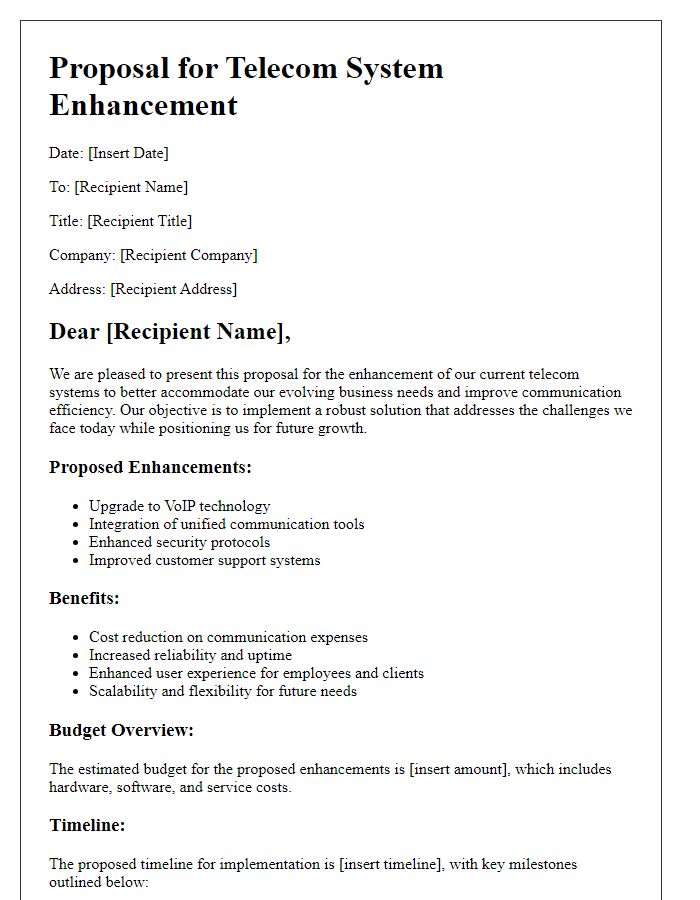
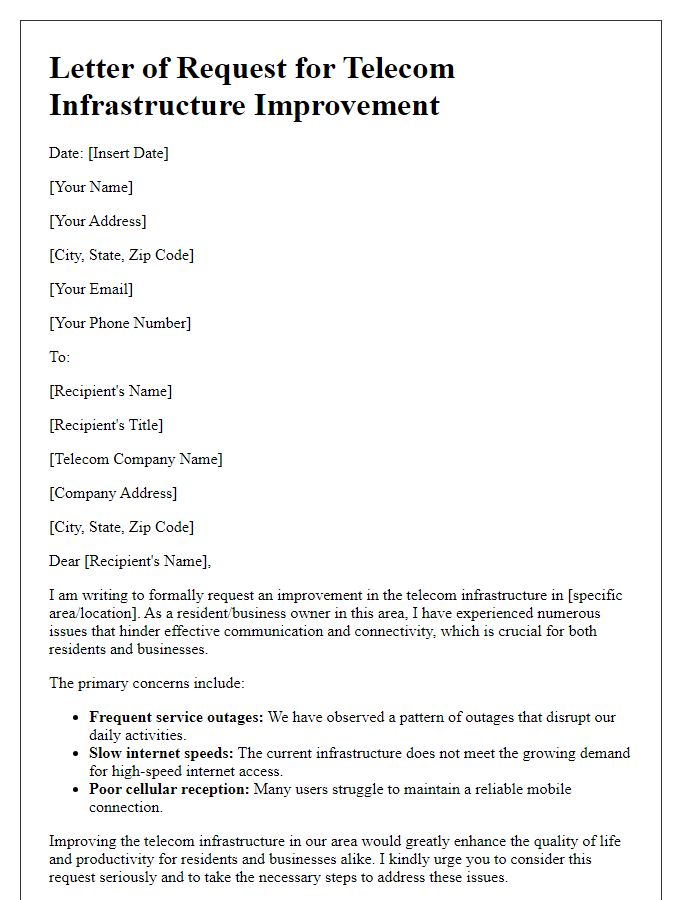
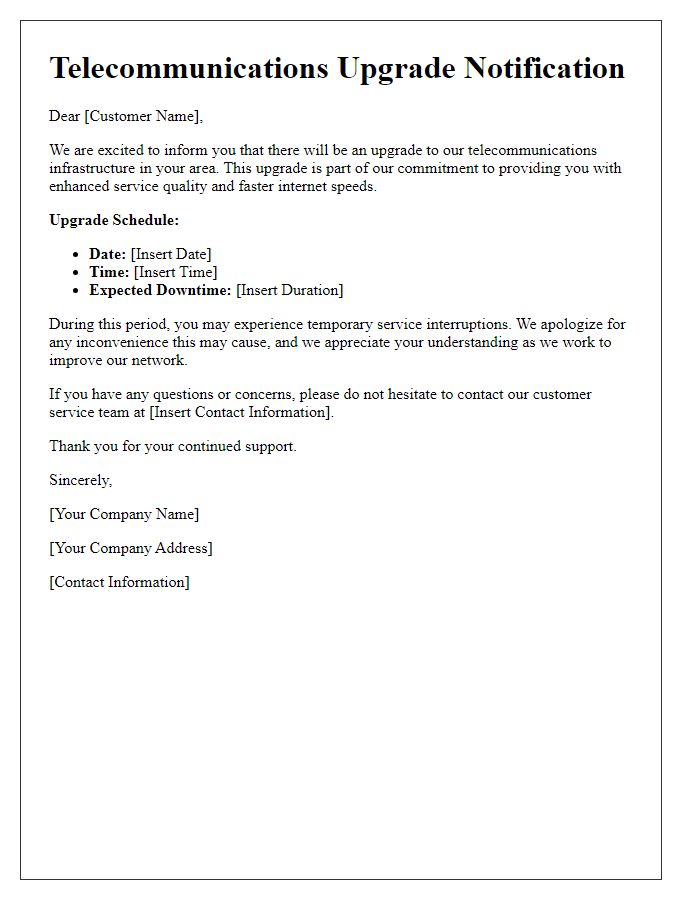

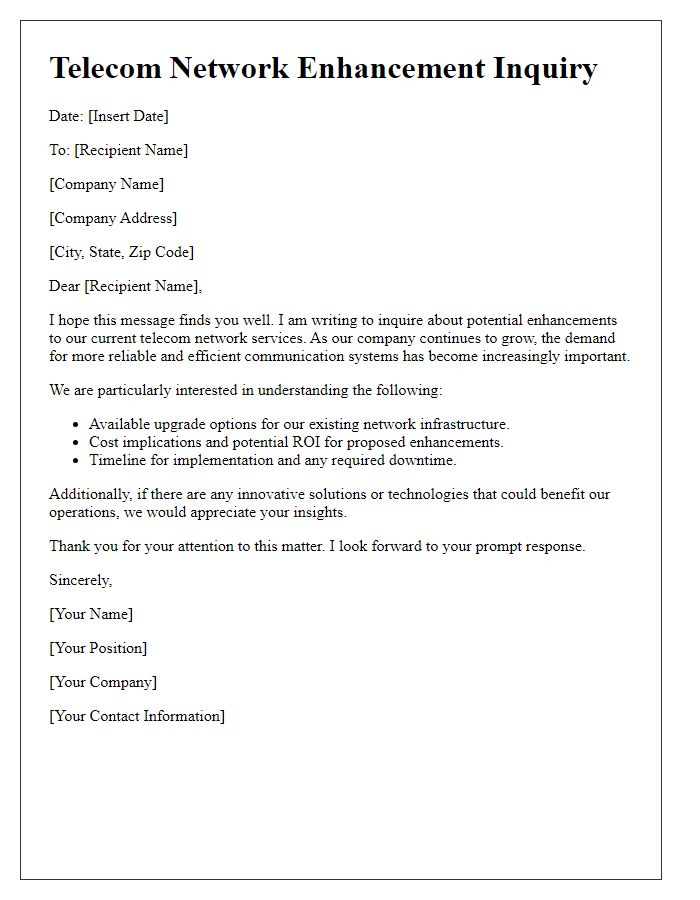

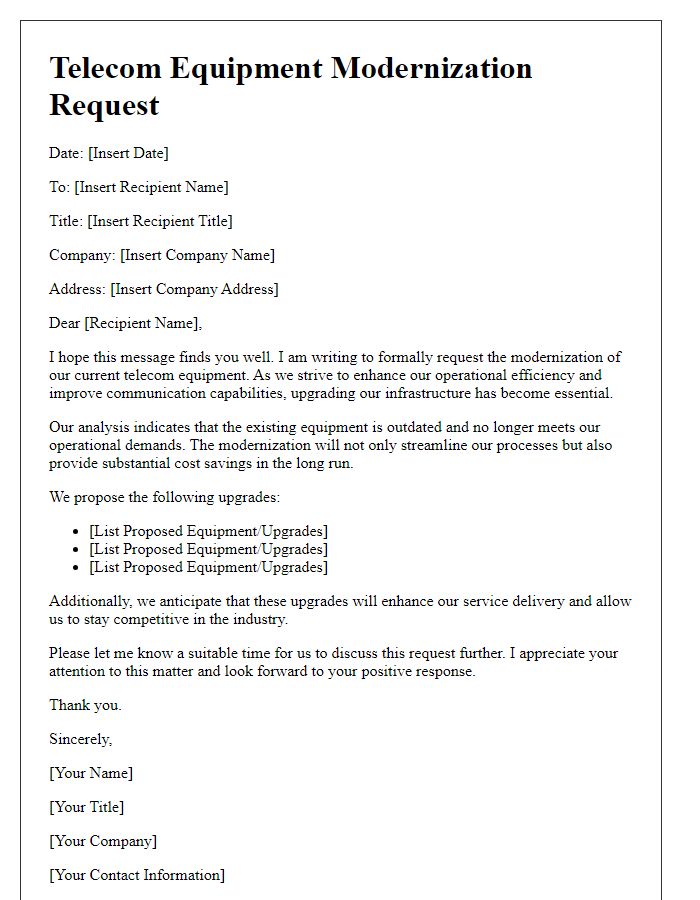
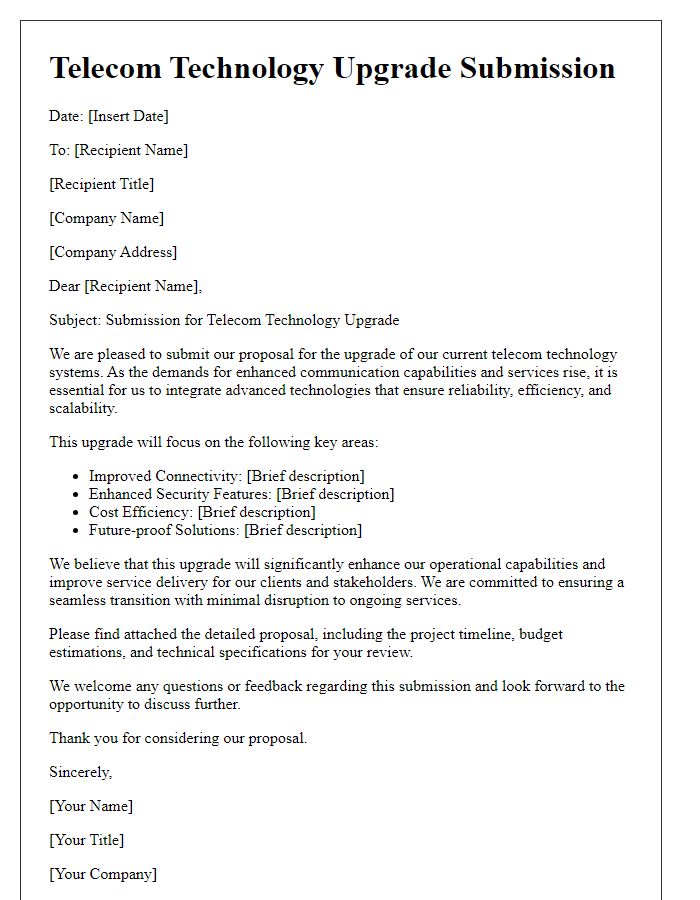
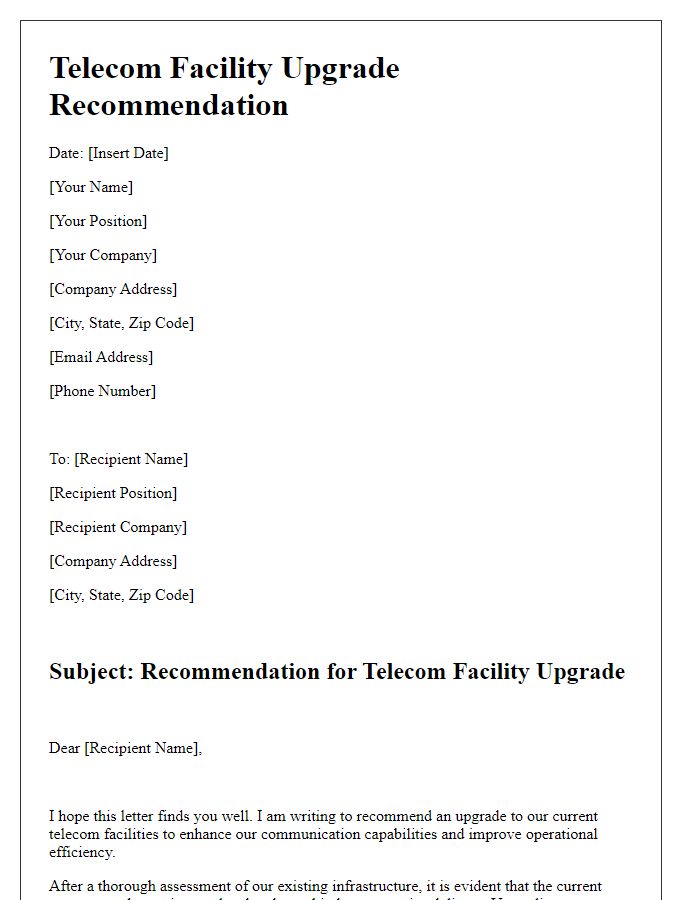
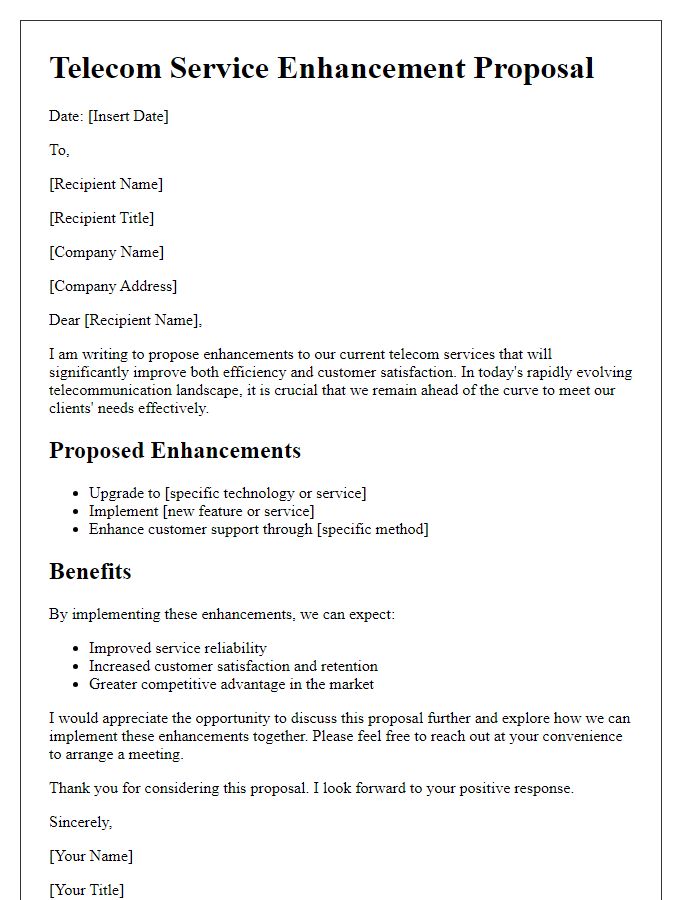


Comments